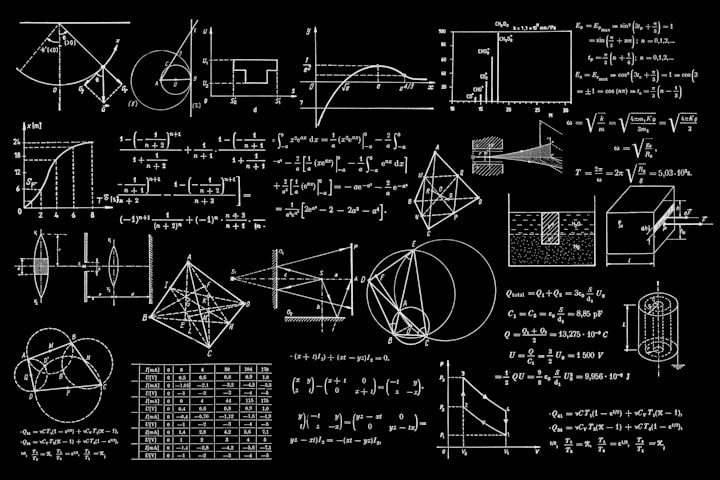
Title: Effective Study Tips for Mathematics
Imagine waking up tomorrow and noticing a significant change in your sensitivity towards numbers. Upon arriving at school, you are met with a math test. Quickly scanning through the exam, you realize that all the questions in your head simply make sense, and the answers just come to you. However, this may not be the experience for everyone.
Greetings, my name is Han, and I graduated from Columbia University's engineering school, where I majored in math and operations research. As someone who is skilled at math and enjoys studying it, people often have the impression that I am very intelligent. They think that the reason they are bad at math is that they are not as smart as I am. Little do they know that I struggled with math growing up.
I am originally from China, where in high school, all students had to study math, English, and Chinese. They could choose between two paths: liberal arts, which had history, politics, and geography, or natural science, with physics, chemistry, and biology, and a slightly harder math test. Considering that I studied math and engineering in college, lots of people assumed that I must have chosen the natural science track. Surprisingly, I did not. I chose the liberal arts track because I was really bad at math and science. They just seemed so hard to me. I couldn't understand what the teacher was talking about in the lecture, and I didn't know how to do my homework. I still remember my first high school math test. I had no clue what was going on, and I told myself that maybe it was just because the content was really hard. Maybe if I didn't get it, no one else would get it either. But I was so wrong. I got a 49, and I still remember the average was 78, and the highest was 96.
By U.S. standards, I was definitely getting C's and B's in my math classes, and I thought maybe it was just because other people were smarter than me, and I was just bad at math. I got stuck in this cycle: I hate math, so I avoided studying it, and then I got really bad scores, and I hated math even more. I felt so defeated and just plain stupid. If you are struggling with math right now, I fully understand you. In this video, I will show you how I went from someone who hated math to becoming someone who is really good at math and even enjoys and loves math.
When I was in high school, if I saw a very hard problem, I would look at it and have no idea how to approach it. So, I had to take out my notes and textbooks and try to figure it out. After a while, I would have some idea and write down the first step. However, as soon as I moved on to the next step, I got stuck again. Finally, after 30 minutes, I would manage to complete the question, only to check the answer and find out it was still wrong. So, I would just drop down the correct answer and move on. There's no way it's going to be enjoyable for you if you keep running into problems and getting stuck at every single step. Here is the system that I used in college, and it actually works.
When I encountered a question, I didn't start writing immediately. Instead, I took a moment to mentally walk through how I was going to solve it. If I realized I didn't know how to solve it or foresaw myself getting stuck, I just gave up. Yes, you heard me right. I just gave up. Instead, I looked at the answer. I took the time to thoroughly understand the answer key and its approach at each step. Once I grasped the answer key, I set it aside and tried to solve the question on my own. Now, I knew precisely what the question was asking about. I wrote down each step. This time, I didn't give up too easily and made a general effort to apply what I had just learned from the answer. Once I completed the solution, I compared it to the answer key. If I realized I had done it incorrectly or was stuck at a point I could not quite recall, I just repeated the process: understand the answer key, answer the question again independently until I got it right.
A couple of reasons why this is so much more effective than the first one that I did when I was in high school. First of all, it triggers positive feelings. Instead of feeling frustrated or not knowing where to start, you get to complete the question correctly on your own. This will give you a sense of accomplishment, which is my favorite part of being a math major. That I get all the hard questions right. I know how to do the hard questions, and it makes me feel good. It would just boost your confidence and intellect. Secondly, this will save





Comments (1)
Good tips, I remembered some of them. The main thing is regular practice. At first I used the math assignment help service, I found https://mysupergeek.com/math-assignment-help-service for this. Use different sources, textbooks, video tutorials and applications. Ask questions on the forums, I've done it all.